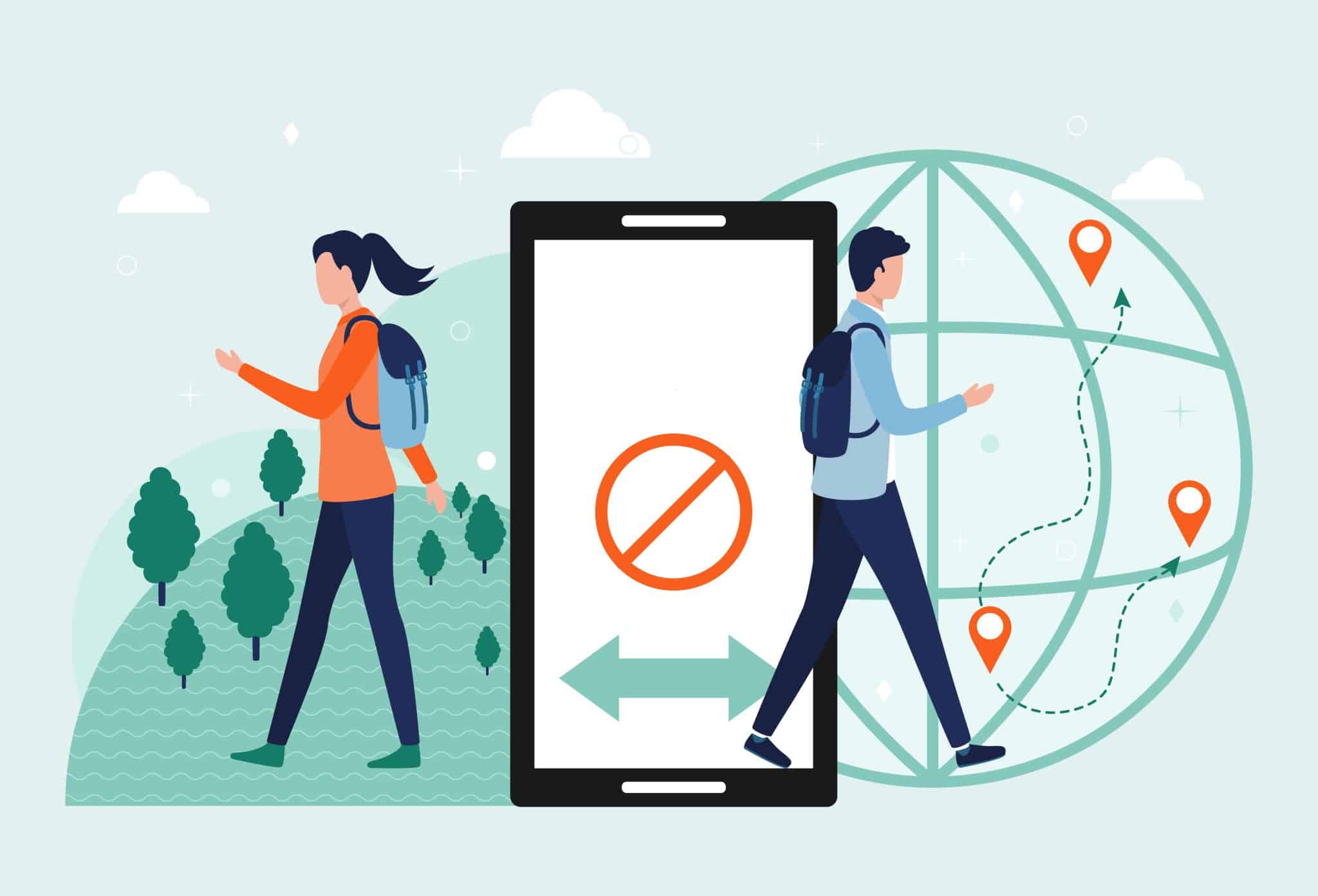Psychological Detox: How To Get Rid Of Information Noise And Not Burn Out
In this modern age, it’s easy to get overwhelmed with information. You receive texts every hour, social media is riddled with posts designed to drip feed you dopamine, and cable TV and even news channels try to keep you hooked with cliffhangers and flashy ads.
All that noise will overload your senses, leading to problems like cognitive overload and burnout. In this article, we’ll explore how you can detox from information noise and avoid burning out.
What Is “Information Noise”?
Before we get into what “Information Noise” is, we need to understand what noise is. In sound, noise is unwanted, unintentional, or harmful sounds which disrupts the intended message that’s meant to be heard. In a similar vein, psychological noise refers to when emotions interfere with the receiver’s interpretation of a message.
Essentially, your internal dialogue distracts you from properly comprehending the speaker’s message. This can happen if you’re preoccupied with personal problems. Alternatively, if you’re in the presence of someone to whom you have strong feelings one way or another, this can act as psychosocial noise.
Information noise is the interference within the receiver’s mind that distorts or prevents an accurate understanding of the message. This can be caused by preconceived notions, stress, interest in the conversation topic or emotional states which make it difficult to process information clearly. These things function as noise within you which falters communication.
Information Noise is comprised of two smaller subsections of noise:
- Mental Noise: Noise caused by high levels of emotional arousal or mental agitation, usually when people are trying to process information under stress.
- Psychological Noise: Noise caused by personal thoughts, assumptions, biases, and emotions
Information noise can also refer to a barrage of irrelevant, distracting, or even inaccurate information. This can obstruct useful information, and make your task harder because you have to sift through all the information to find out what’s legit and what isn’t.
Why Is Information Noise a Bad Thing?
When you’re being overwhelmed with information, you’re dealing with an influx of distracting, low-value, or even inaccurate information. One of the main problems this leads to is stress, which the Liven platform has found leads to a myriad of other mental and physical health issues. This not only obscures useful information, but it can also end up causing numerous other issues:
- Cognitive overload: We don’t have the capacity to comprehend ceaseless information. When you’re looking at a ton of info, of which a lot might not even be vital/relevant, you’ll experience cognitive overload. This can then lead to issues like mental fatigue.
- Reduced attention span: Dealing with a constant barrage of information eventually leads to an inability to focus on one thing at a time. That means with enough exposure to it, you’ll suffer from a reduced attention span, lowered focus, and an inability to complete tasks effectively as a consequence of this.
- Increased stress: When you’re always being bombarded with information, you’ll always wonder in the back of your mind if you’re missing out on anything. With so much info constantly being available, every minute you aren’t staying up to date feels like you’re being left behind. This contributes significantly to stress and anxiety.
- Reduced understanding: By having a constant stream of information, you tend to prioritize quantity over quality. This can lead to you having superficial understanding of a lot of things, but no deeper knowledge of any particular subject.
- Reduced critical thinking: When you’re overwhelmed with information, you’ll often be less incentivized to critically assess the information you receive, question the sources, or be bothered to find other perspectives. There’s an increased risk of repeatedly accepting information that confirms your biases and staying in echo chambers. We see this happen in the real world with the massive spread of misinformation.
These issues together can eventually cause you to feel burnt out.
What’s The Risk of Burning Out?
We’ve established that information noise can make you feel burned out. Let’s explore why exactly burning out is something to avoid:
- Higher risk of depression and anxiety: Burning out can severely impact your mental health, triggered by stress. You will struggle to feel positivity or feel engaged with the things around you, which can then lead to a negative outlook on everything around you like work, relationships, and other aspects of your life.
- Physical health issues: Burnout is accompanied by chronic fatigue, which can also impact your immune system, cause sleep issues like insomnia or hypersomnia, and lead to problems like headaches, gastrointestinal issues, and muscle aches.
- Decreased productivity: When you’re struggling with burnout, you’ll find it difficult to focus on work. This can lead to reduced performance, which is also accompanied by reduced job satisfaction.
- Lack of enthusiasm: When you’re burned out, you tend to lose all motivation to get things done. Often, you’ll be of the mentality of ‘floating wherever the waves take you’, and not in a fun, exploring kind of way. This lack of passion and enthusiasm can reflect in your work and relationships, eventually leading to negative consequences.
How Can We Psychologically Detox From Information Noise?
Detoxing from information noise can feel difficult, but it’ll make a massive difference in your mentality and improve your life for the better. The most common source of information noise tends to be from technology, so our detox methods will revolve around that:
Digital Detox
Swapping through different apps, doom scrolling on different social media, and mindlessly spending your time on random devices can significantly add to information noise. Try to silence your devices, create tech-free zones in your home and office, and limit screen time as a whole, especially before sleep. These few measures will reduce your mental clutter and help you reclaim your focus.
Active Consumption
One of the biggest causes of information noise is the fact that we experience a barrage of information throughout the day while only taking it in at the surface level. The next time you decide to take in any form of information, be it through social media, a news segment, movies, and so on, try to actively consume it. That means truly dedicating your focus to the subject at hand and understanding it on a deeper level.
Mind The Medium
The form in which you consume information can contribute to information noise. Social media and TV tends to overload your senses and leaves you unable to retain more than just surface information. However, mediums like books force you to focus, be imaginative, and draw a deeper understanding of the information you consume.
Conclusion
It’s hard to avoid the excess of information in the modern era. Everything is designed to grab your attention at the surface level, keeping you there just long enough before you move on to the next thing. Hopefully, with these methods, you’ll conquer information noise and avoid burnout with ease.








